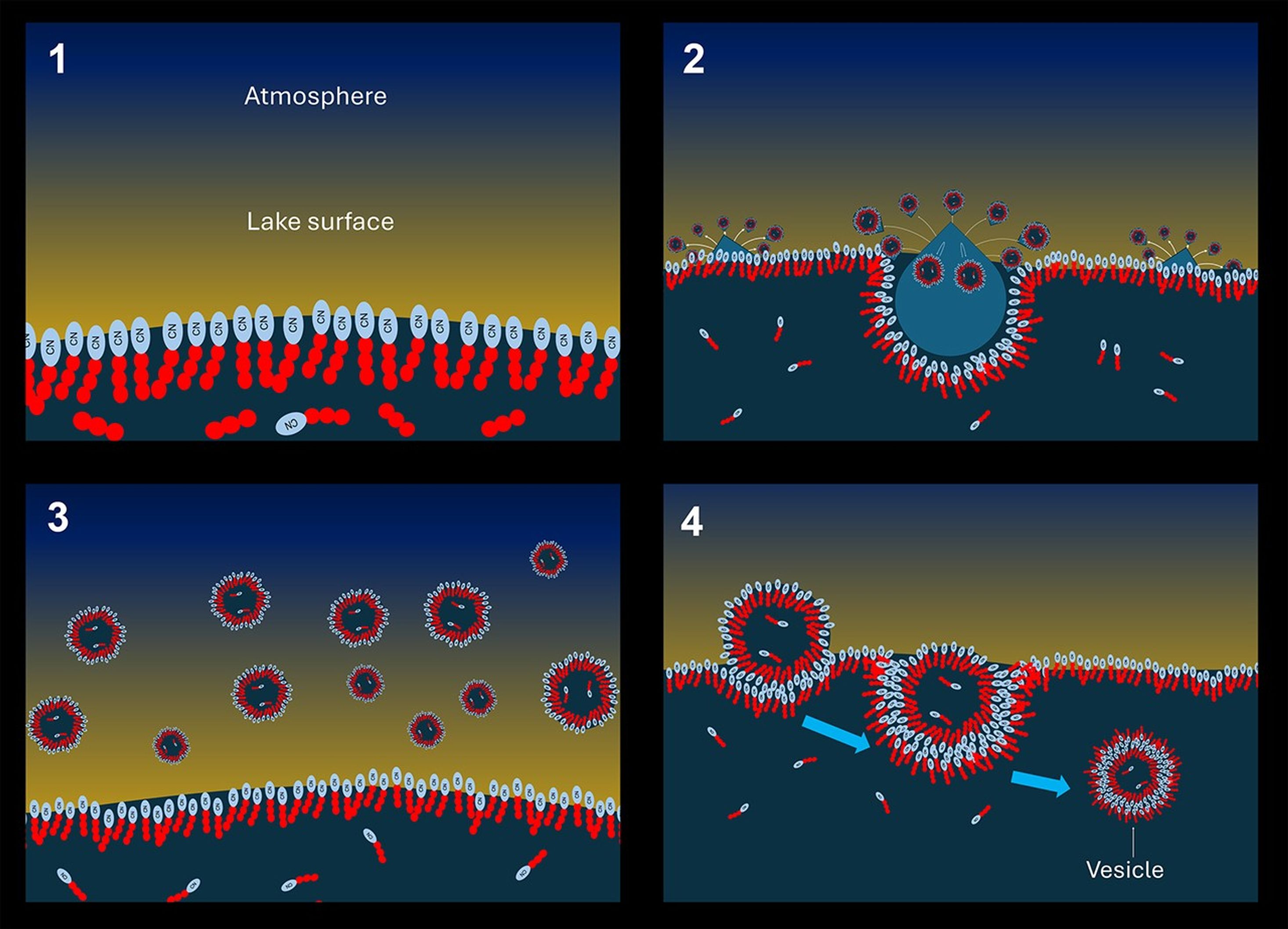Titan is the second-largest moon in the solar system and the only other body with rivers, lakes, and seas. They are not made of water. With a temperature of -179°C (-290°F), these are not made of water but of liquid methane and ethane, as well as hydrocarbons. This is truly an alien environment; still, the presence of flowing liquid and interesting chemistry has intrigued scientists about the possibility of life on Titan.
Models show that some crucial structures could form on this peculiar moon.
Fundamental to Earth’s biology is the existence of cells. From the simplest to the most complex, these crucial units underpin fundamental behaviors in living systems. Before considering the question of life, researchers have worked on whether some of the building blocks are possible in conditions so different from Earth. To make a cell, you have to be able to make a vesicle.
Vesicles are bubbles where some liquid is trapped by molecular structures. In this experiment, researchers looked at molecules called amphiphiles – these are molecules that have a portion that is attracted to water and another that is attracted to fat. This is how soap works, as well as many other molecules.
Some of these amphiphiles can form bilayers, trapping a droplet of liquid inside, even if the outside is also more of the same liquid. Life formed in water so it is unsurprising that cells have water inside them. The same could be happening on Titan.
It rains on Titan, so the team modelled precipitation as a crucial step in this vesicle formation. Imagine the presence of amphiphile molecules on the surface of Titan’s lake. A droplet hit the surface, bringing the molecules into contact, separating the outside from the inside. The mechanism doesn’t make a cell, but it shows how a protocell could eventually form on Titan given certain conditions.

Visicle formation on Titan.
Image Credit: Christian Mayer (Universität Duisburg-Essen) and Conor Nixon (NASA Goddard)
“The existence of any vesicles on Titan would demonstrate an increase in order and complexity, which are conditions necessary for the origin of life,” co-author Conor Nixon of NASA’s Goddard Space Flight Center, said in a statement. “We’re excited about these new ideas because they can open up new directions in Titan research and may change how we search for life on Titan in the future.”
More insights into Titan will come from the NASA mission Dragonfly, which is scheduled to launch in July 2028 and will bring a flying vehicle to the Saturnian moon.
A paper describing this vesicle formation mechanism is published in the International Journal of Astrobiology.
Source Link: Molecular "Protocells" May Form On Titan Even At More Than 100 Degrees Below Zero